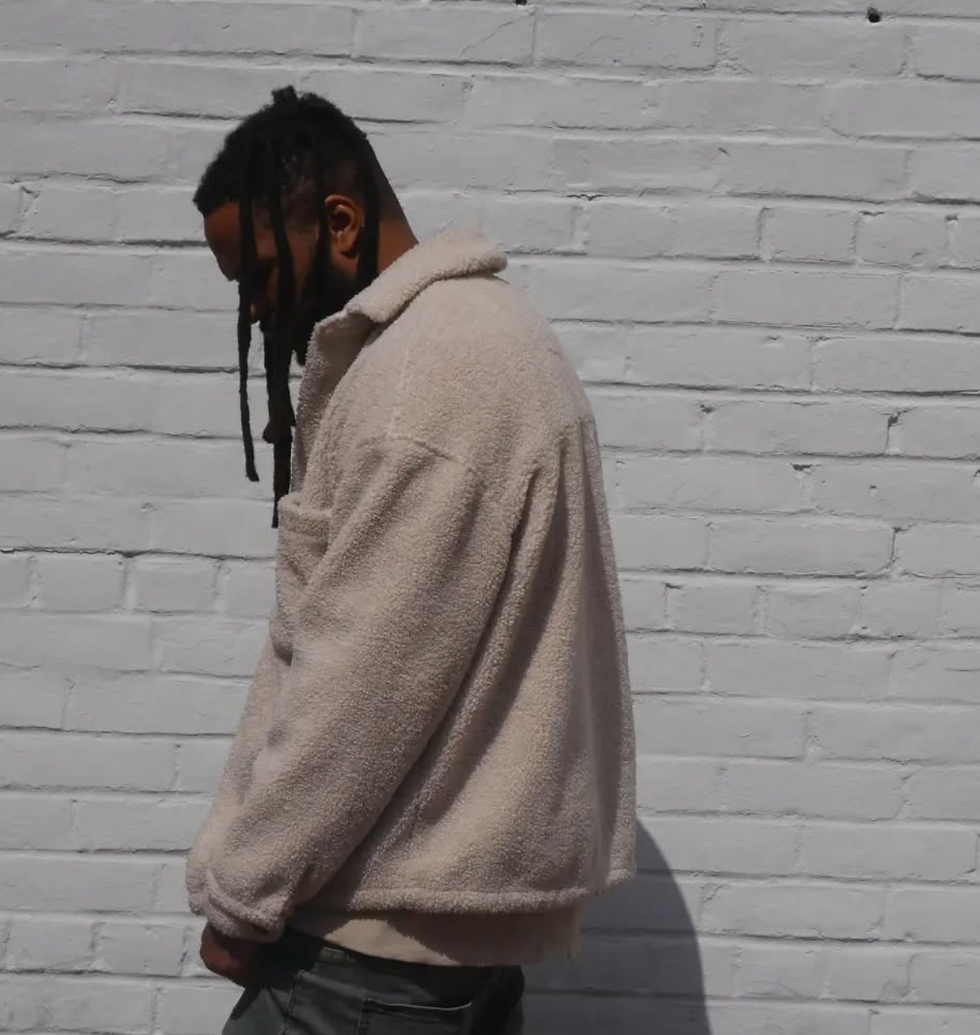Citi Hampton Strikes Gold on "Fa$t Time$ and Broken Youth"
- Jennifer Gurton

- 3 hours ago
- 4 min read

Citi Hampton doesn’t make music to entertain—he makes it to awaken. With the release of his fourth fully self-produced album, Fa$t Time$ and Broken Youth, the Long Island-born artist known also as Treal Smoke turns inward, crafting a deeply personal and philosophically charged body of work that’s part memoir, part manifesto.
Blending progressive R&B textures, avant-garde hip-hop production, and thought-provoking lyricism, Citi explores the intersections of identity, manhood, aging, and the price of survival. This isn’t just an album, it’s the culmination of an eight-year initiation process that saw Citi shedding old systems, redefining time itself (literally—he now follows a Dynastic Egyptian calendar), and returning to the studio with sharper focus and spiritual depth. Having endured false starts, exploitative management, and an emotional breakdown he addressed through ancestral spiritual practice, Fa$t Time$ and Broken Youth feels like the sound of a man who finally knows who he is—and refuses to compromise.
Tracks like “The Next Flight,” “Ma$ Mala$,” and “Speed” demonstrate Citi’s range both musically and lyrically. His compositions layer soulful harmonies, broken-beat drums, dusty synths, and lo-fi textures, all while his lyrics tackle themes like masculine independence, relationship healing, generational trauma, and the working-class hustle.
But it’s not just the content that hits—it's the execution. Citi writes, composes, arranges, mixes, and masters everything himself, positioning him as one of the most complete DIY artists in modern hip-hop. His dedication to his craft shows in every detail, and the result is a 12-track odyssey that challenges, comforts, and commands attention.
Under the Treal Smoke alias, Citi digs into the archetype of the “hot boy” and reimagines it through the lens of historical trauma and black masculine evolution. There’s something ancestral and urgent pulsing through the beats—a call to remember who we are before capitalism, colonization, and conformity stripped us bare.
This is music for thinkers, seekers, and survivors. For black men navigating America’s diaspora, for creatives caught in the tension of capitalism and authenticity, for anyone trying to slow down in a world that glorifies speed.

This album feels like both a personal reckoning and a public declaration. What moment or realization birthed Fa$t Time$ and Broken Youth?
I appreciate the opportunity to be interviewed, thanks to BUZZMUSIC for the opportunity. I just want to acknowledge this is my 4th body of work written and composed by me, so at this point, I'm working to stay in the flow of just knocking out songs. This body of work was not really focused on making a project, just maintaining the continuity of songwriting. The theme of the project started to develop from there.
You write, produce, mix, and master everything yourself—a rare feat in today’s industry. How does full creative control shape your connection to the music?
It's just a better space for me to thrive. There are people who want to work with me, but I maintain distance from them for the purpose of maintaining the depth of my catalog as a songwriter. Im fine with not working with anybody and doing everything myself, so my fanbase can get the clearest vision of what I'm doing as an artist. If I can't knock out the song myself, I probably won't finish it. If I work with anyone, it's because I genuinely respect what they do as an artist, the depth and any quality they have that is undeniable as a artist, plain and simple.
You’ve studied African and diasporic folk traditions deeply. How do those spiritual frameworks influence your songwriting and artistic vision?
It's a really long story about that journey. However, it changed me for the better. Roughly a decade ago, I was initiated into a certain theme of thought that made me realize self-initiative was all I really needed to be a success at life. The main thing I learned from spiritually applying certain epithets and practices from indigenous folk traditions, and what I learned from folk spirituality in all, is centered on the awareness of your own identity. Have you made peace with all the blunders and mistakes of your identity to truly accept destiny? Those types of questions make you aware that healing is a superpower. Once I realized who I was, I never looked back.
Treal Smoke as a concept dives into black masculinity through a critical and historical lens. What truths about manhood were most important for you to communicate on this project?
Really, the music is about a connection between children born in the year 2000 and the children who became adults in the year 2000. My music is focused on a millennial or millennial loop of children born in that age range. it's an homage to late 90's early 2000's new york hip hop aesthetics blended with elements of the experience of black people and black youth in the diasporic African or African American experience, Im speaking from the perspective of pardon my language "real solid n*" who feel like they have one foot in and foot out like they are a nexus between common life and the underworld. As far as the music, that's where I'm at.
If someone hears Fa$t Time$ and Broken Youth for the first time, what’s the one thing you hope it stirs in them?
I appreciate that question. I want them to hear the appreciation and the respect for hip hop culture. I want them to hear the respect for the art of rap and the art of songwriting, also I just want them to catch major vibes. to let the youth and old know that being cool isnt really about age, the shit is about relevancy. If you know what's relevant, you will thrive forever.


